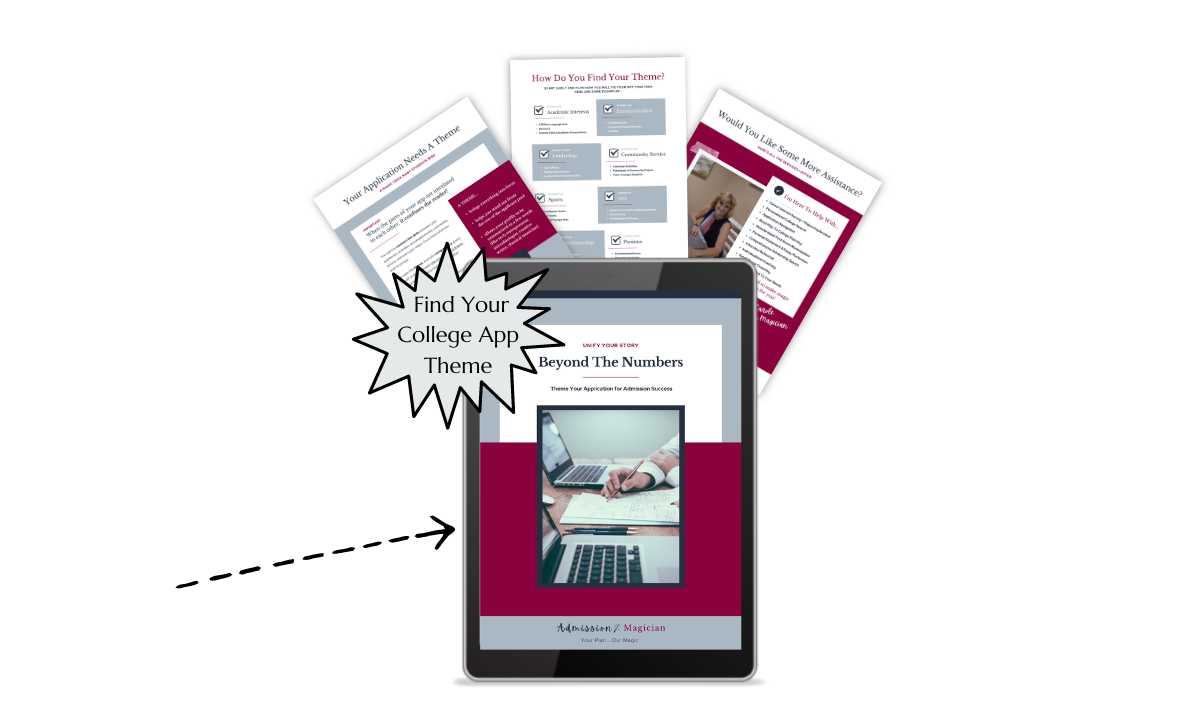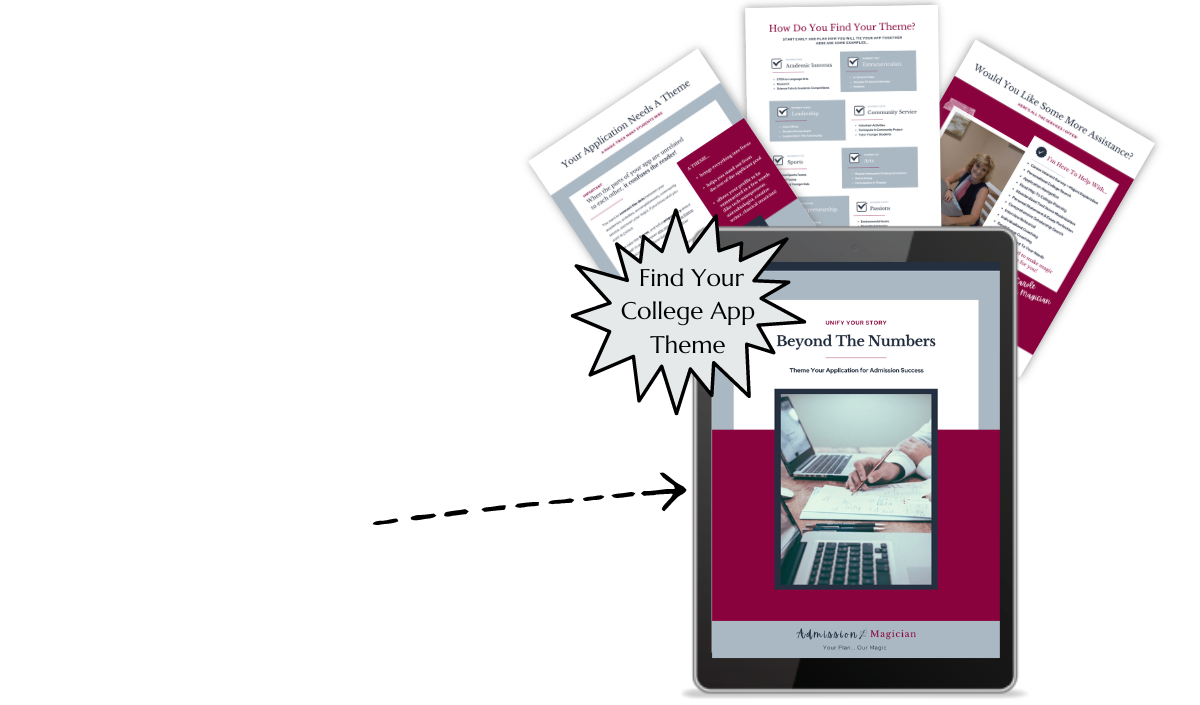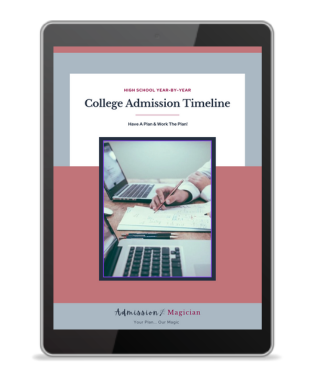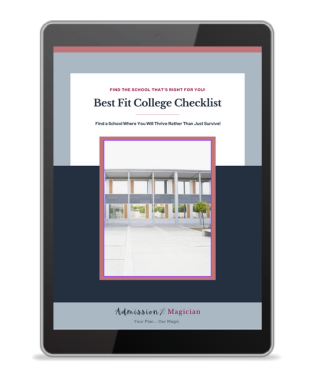
AS SEEN ON





your plan... our magic
Your Future Is Calling!
Are You Ready To Answer?
Grab my BEYOND THE NUMBERS free guide, that let's you in on a secret many students miss!


from application to acceptance
Making Your College Dreams Come True.
1.
College SEARCH + pre-planning
Our college coaching services provide comprehensive support for students in defining their academic + career paths, and guiding them to find the perfect college match for their goals!
2.
application navigation + test prep
Clear instructions will be provided about each part of the college application, including the essays, to ensure the best version is submitted. We help you manage & meet all deadlines!
3.
scholarship search
We provide clear instructions for how and where to search for scholarships. You will follow a streamlined process to maximize time spent, and increase the probability of success.
Let me be your guide!
I will be with you every step of the way... from choosing the perfect college fit, nailing your test scores, highlighting your special talents, rocking a stellar application, and finding the scholarship money to fund your dream.
We can work magic together!
Hey There, I'm carole...
Educator, Proud Mom, Author + College Enthusiast!
I received my Bachelor's Degree in Early Childhood Education, my Master's Degree in Curriculum, Instruction, and Literacy, and I have completed my National Boards.
I have had a career as an educator and tutor for the past 35 years.
I am the mom of three amazing college graduates, who have successful careers in accounting, law, and non-profit. They all went on to higher levels of education, and have little to no college debt.

I have helped hundreds of students navigate the application and scholarship process, and achieve their college acceptance, while successfully earning thousands in free in scholarship dollars. I am so excited to work magic on your college applications!
When I'm not working with clients, I enjoy walking, reading, writing, swimming, and going to the beach. My favorite weekend activity is enjoying trips to Walt Disney World with my family!
Imagine what life will be like when we work magic with your applications?

“Carole Burns is the BEST!”
She helped both my sons obtain acceptance into each of their dream schools, and win numerous scholarships by giving them the tools and support to create the best application possible. Her knowledge of what to do and the time frame to do it took so much pressure off me as a parent. Best decision we ever made!
- A Fredette
SOUNDS AMAZING, RIGHT?
Gavin Lind carole helped me tremendously!
“She helped me successfully navigate the college application process & provided helpful strategies which lead to a four point increase on my ACT.”
EXTREMELY THOROUGH

the admission magician difference
Experience The Magic.
prep for college while enjoying high school
College Application Timeline
01
Admission Magician knows the secrets, but a successful application requires more than just the wave of a magic wand. It's about practicing the art of college prep throughout high school. This is your 4-year guide!

find a school where you will thrive not just survive
Best Fit School Checklist
02
The right college will foster an environment that will challenge you, but also help you to realize your dreams and goals, by providing you with the tools that will remain with you for the rest of your life. Find the perfect fit for you!

don't underestimate the power of the essay
Write It Right Essay Guide
03
The essay is a way to distinguish yourself from other qualified students. This guide will show you how to share who you are as a person, what you are passionate about, and how you will fit into the college community.

Spilling The Tea On Admissions...

Where To Begin
How to get started finding your dream college! ...more
Common Application ,College Admissions
October 15, 2024•2 min read

Time To Shine
Learn how to highlight all your achievements in the Activities list! ...more
Common Application ,College Admissions
October 15, 2024•2 min read

Finding Free Money... Funding Your Dreams
Tips for finding + applying to scholarships to fund your dreams! ...more
Scholarships
October 15, 2024•3 min read

Explore
On Social

Explore
On Social
© Copyright @ 2025 ~ ADMISSION MAGICIAN ~ all rights reserved ~ PRIVACY policy ~ Terms & Conditions
© Copyright @ 2025 ~ ADMISSION MAGICIAN ~ all rights reserved ~ PRIVACY policy ~ Terms & Conditions
